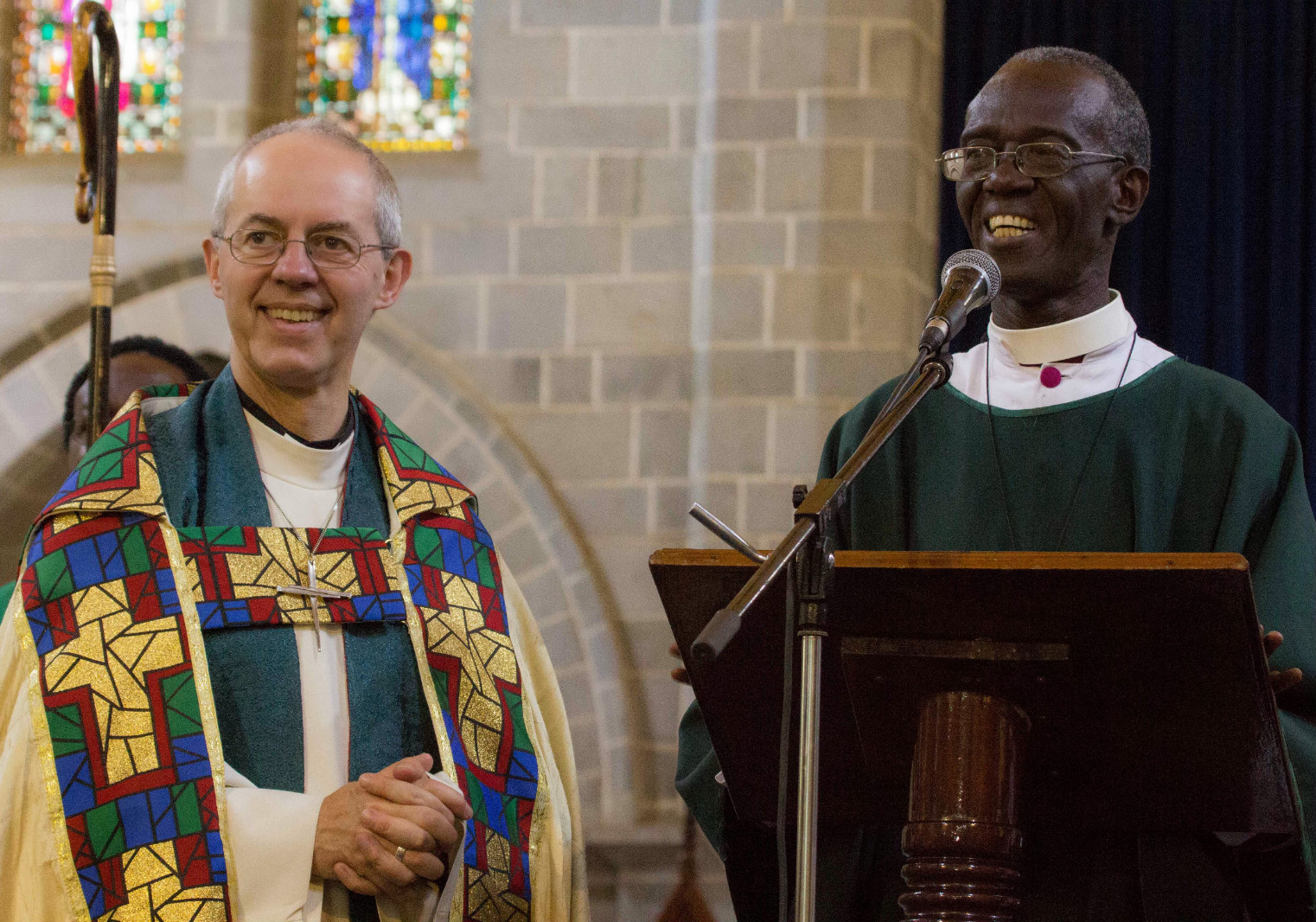On the eve of this week's gathering of restive Anglican conservatives in Nairobi, Kenya, Anglican Archbishop of Canterbury Justin Welby on Sunday said "the colonial structures" of the past should give way to reform.
"We need a new way of being in communion," he said during his sermon at the Anglican cathedral in Nairobi, according to media reports. Starting on Monday, the Global Anglican Futures conference (GAFCON) will host about 1,200 leaders from 40 nations.
In 2003, a flashpoint occurred with the consecration of the openly gay Gene Robinson (now retired) as bishop of New Hampshire of The Episcopal Church (TEC). This triggered an exodus of conservatives from TEC, the American branch of the worldwide Anglican Communion. TEC then started extensive litigation against clergy, churches, and dioceses that withdrew from the national church.
The first GAFCON meeting, held in Jerusalem in 2008, among other issues condemned as false the view that proclaimed "God's blessing for same-sex unions over against the biblical teaching on holy matrimony."
At yesterday's services in Nairobi, AnglicanInk reported:
To combat the subordination of the church to the culture of the world, the "Bible must be at the heart of our study, our life, our walk with Jesus" [Welby] said, but a "church that only reads but does not act, disgraces the Bible." The archbishop then moved into the heart of his sermon, saying "our differences will always exist. How we deal with them is clear from Scripture; but the church seldom follows" Scripture when dealing with conflict. "There is a need for new structures in the Anglican Communion," the archbishop said, adding the issues that divide us are "simple and complicated." To address them "we need a new way of being in communion, not the colonial structures" of the past, he said. But it was unclear as to what the solution was as each province offered its own solution to the problem, yet "we must find a way to live together, so the world will see" Jesus is Lord. The Anglican world must be a sign to the world of the power of Christ and must engage in a deliberate program of "witness, worship, evangelism, and a passion for the Holy Spirit." "The more seriously we take the Bible" the more effectively we will be able to deal with our divisions," he said.
Leading up to this event, African Anglicans said the situation in the global church had gotten worse since 2003. "We have a new Archbishop of Canterbury who is born again and has a testimony," said Uganda's Archbishop Stanley Ntagali. "I have personally met him and I like him very much. But, the problems in the communion are still there, and they don't change just because there is a new global leader. In fact, 10 years later, the crisis has deepened."
Many African Anglican conservatives draw inspiration for reform from the renowned East Africa revival, which started in Rwanda in the 1930s. "We need to learn from our history," said Kenya's Archbishop Eliud Wabukala. "Divisions about the Bible had spread to some missionary organizations in East Africa after the First World War, but the leaders of the East African Revival knew that there could be no true evangelism and no true revival unless the scriptures are allowed to speak as what they really are, the inspired Word of God."
The Anglican Communion has more than 80 million members and is the third largest after Roman Catholic Church and Eastern Orthodox churches. The sponsor of GAFCON is the Fellowship of Confessing Anglicans.
Welby was in Kenya about 18 hours before he returned to London for a flight to Iceland for a previously planned meeting with European church leaders.
The nonprofit media organization, AnglicanTV, is providing video feeds from GAFCON.









